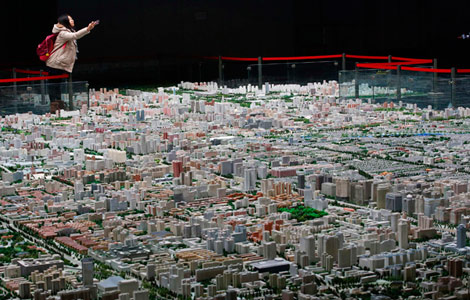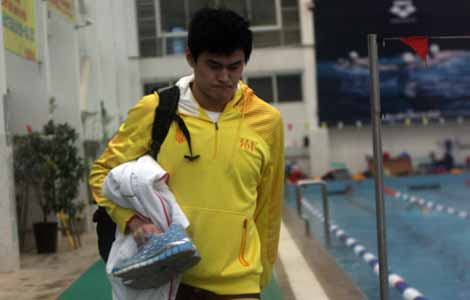Factories halted to clear air in Beijing
Updated: 2013-12-27 01:05
By Zheng Xin (China Daily)
|
||||||||
Approximately 200 polluting factories were shut down temporarily this year in Beijing, greatly improving the capital's air quality, a city environment official said.
Zheng Zaihong, deputy head of the pollution prevention and control department of the Beijing Environmental Protection Bureau, also said the city has reduced cement production by 1.5 million metric tons and slashed the consumption of coal by 110,000 tons.
Zheng, reporting this year's industrial emissions for the capital at a news conference on Thursday, said factories producing construction materials, chemicals and furniture-making as well as casting and forging operations, were among the most affected.
"The suburban districts, including Tongzhou and Fangshan, saw the most suspensions," he said.
Liu Ming, deputy head of the energy conservation department at Beijing Commission of Economy and Information Technology, said the closures and upgrades to polluting factories in Beijing this year have greatly reduced the city's air pollution.
"Industrial smoke and dust were cut by 4,000 tons, nitric oxide by 7,000 tons and volatile organic compounds by some 8,000 tons," he said during the conference.
Liu said it would be harder for companies that pollute the air, including cement, petrochemical and iron and steel businesses, to obtain approvals for future projects because of the city's stricter emissions rules.
"It's a difficult choice for Beijing because the industries have contributed considerably to the capital's economic development," he said. "But we must implement stricter standards because air pollution has become a very significant issue in the capital and in cities across the nation."
The government of Huairou district, in the outskirts of Beijing, declined applications for 78 industrial projects this year, many of which were for the production of cement and steel.
A petrochemical refinery project that had an investment of more than 30 billion yuan ($4.9 billion) by the Sinopec Beijing Yanshan Company was recently turned down.
"It's a process we have to go through despite the economic losses," Liu said.
He added that the capital should enhance its transition from a labor-intensive and heavy-industry-oriented city to a high-end one. Beijing has allocated about 250 million yuan to support the construction of industrial parks and energy conservation and emissions reduction technologies, according to the commission.
"The capital still has a lot of potential to tap into industries that reduce industrial emissions," he said. "The application of advanced sciences and technologies will greatly reduce the amount of pollution emissions and hazards imposed on one's health."
zhengxin@chinadaily.com.cn

 LeBron James is AP's Male Athlete of the Year
LeBron James is AP's Male Athlete of the Year
 Year-end horse-ride parade California
Year-end horse-ride parade California
 Pick your new year sunrise
Pick your new year sunrise
 Memorial a big draw on Mao's birthday
Memorial a big draw on Mao's birthday
 China's urbanization rate to hit 60% by 2018
China's urbanization rate to hit 60% by 2018
 Oly champion resumes training after scandal
Oly champion resumes training after scandal
 Private clinics take on new role
Private clinics take on new role
 Obama thanks troops for service
Obama thanks troops for service
Most Viewed
Editor's Picks

|

|

|

|

|

|
Today's Top News
China reports 12th vaccine-related death
China begins e-commerce legislation
Li drops in to help realize home dream
Govt issues holiday warning
US judge upholds NSA surveillance program
War shrine visit fury mounts
China's vaccines are safe: WHO
Chinese students in US buy luxury
US Weekly

|

|






